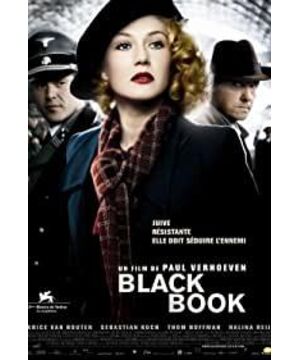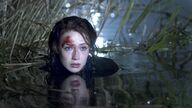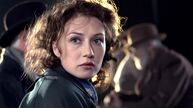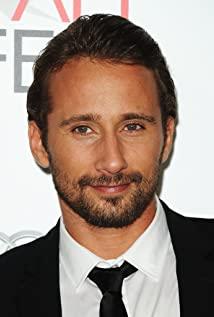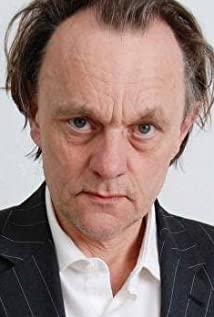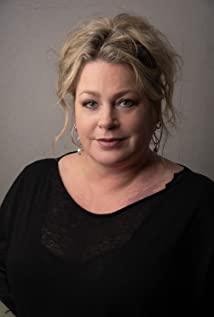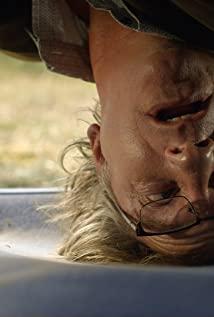Paul Verhoeven's experience with multiple Hollywood blockbusters helps this disastrous World War II film avoid the dull, oppressive, and inescapable intellectual baggage. Any viewer can digest this "black book" in two ways: First, you see a devastated woman who has a tragic fate, but who is passionate about life, and who is happy and intelligent. You can enjoy her femininity while empathizing with her suffering. A strong cougar demeanor, thanks to Paul Verhoeven's fun, this time, he made women so natural and vivid.
For the audience, secondly, it is the view of the war, looking back at that era.
In these two aspects, "Black Book" explains very well. Thought, life, art, truth, if Paul Verhoeven has always wanted to pursue this, he's actually done pretty well (though I suspect that Paul Verhoeven is above all fascinated by the women in this story, as can be seen from his radiance In the tidbit interview... Of course, it can also be said that he has a lighthearted attitude towards history... It seems far-fetched to say that). Venice was too mediocre last year.
The biggest attraction of "Black Book" is the performance of actress Carice van Houten, who completes the film with the screenwriter. The heroine's character has a captivating charisma, and the performance is successful. It almost started when Ellis secretly competed with rabbits for radishes. I believe many people were attracted. This woman has a beautiful nature and is cuter than her appearance. The plot is very cleverly set, and the details are intertwined, with the kind of rigor and surprise in "Eavesdropping Storm". The twists and turns of the plot completely fit Ellis' character, with both heavy suffering and bright love, and the combination of the two is not jerky at all.
What makes the heroine attractive is also her state of mind. I have experienced family members being murdered, I have been abused by inhumans, and framed... In such a teasing life, I have not been extreme, nor lost my nature, and lived rationally but not indifferently. Such a kind of character charm is fully displayed by the performance, and it gives another gesture to history: everyone in the war takes a stand, and there is no complete unity and opposition.
The entire plot of "Black Book" is based on the premise that domination and resistance often exist relatively, showing the role of small people in the larger environment, as well as their rich individuals. It's just that in the supporting roles of other characters, there is no more dazzling and dazzling heroine. This may be the biggest weakness of Black Book. The plot of these secondary characters is still good, albeit a little thin.
Other than that, a moderate sense of humor, a little romance, a melodious solo, and an erotic arrangement are all right. Compared with the previous heavy tastes, Paul Verhoeven showed good self-control and control. A suspenseful main line in the film even arouses the curiosity of the audience, and the ending is well implemented.
Compared to those deeply reflective war films, this Black Book is extremely creative. It has a minimalist style, which is frugal and natural, both in terms of plot settings and shooting techniques. There are no convoluted metaphors, no shocking mirror paintings, and all rely on the most simple things in the film to move people: the performance, the plot.
Memories of the war can come in many ways: dispassionate analysis, blatant satire, factual documentation, provocation, sharp criticism... These kinds of techniques have been reflected in many movies. "Black Book" still finds fresh expressions—feminine, even sexual seduction—and it's appropriate. A woman can play very little role on both sides of the war, but everyone can think of a female spy, a female secret agent. "Black Book" contributed one of the most perfect female spy.
The focus of the film is on the woman, her emotions, grief, hesitation, struggle, and joy. Because every angle is complete and natural, it looks perfect. If you completely remember a character, you will completely remember the history represented by that character. "Black Book" is not at all passionate in telling this story, but it is unforgettable.
Without pretense, Paul Verhoeven moved the set of expressions honed to perfection in commercial films to tell the background of World War II, and the effect was very good. Simple is art. The scene in the film, the liberation of the Netherlands, where Ellis hears that his lover was shot, twitches
and weeps, says the simple line "When dose it end?"
! !
View more about Black Book reviews


